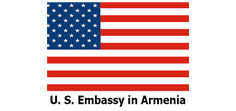Russian Foreign Minister Sergey Lavrov, at a joint press conference with his Armenian counterpart in Yerevan on November 11, announced (19:45) that Nagorno-Karabakh has been left out of the talks on the settlement of the conflict by the decision of one of the “former Presidents of Armenia”.
“In the early phase of discussions on the settlement of the Nagorno-Karabakh conflict and subsequent negotiations, when hostilities ceased, Nagorno-Karabakh was a party to the agreements and related negotiations that began after the ceasefire. At some point, the Armenian leadership, namely one of the former presidents, decided that the interests of Karabakh would be represented by Yerevan.”- said the Russian Foreign Minister in response to a Russia Today reporter’s question on how Russia views Yerevan’s proposal to return Karabakh to the negotiations table. This statement by Sergey Lavrov, apparently referring to the second president Robert Kocharyan, is particularly noteworthy because the topic of Artsakh being left out of the negotiations table has been the subject of numerous speculations and manipulations within Armenia.
When was Artsakh left out of the negotiations?
Thus, the last trilateral meeting between representatives of Armenia, Nagorno Karabakh and Azerbaijan took place in Moscow in spring 1997.
There are detailed descriptions of this period in former Foreign Minister Vartan Oskanian’s book “On the road of Independence. The Big Challenges of the Small Country” and articles by Tatul Hakobyan covering the Karabakh conflict negotiation process.
However, it is noteworthy that after the last trilateral meeting in Moscow in 1997, the Nagorno Karabakh Republic continued to be a party to the negotiations.
This is evidenced by the fact that the “General State” version proposed by the OSCE Minsk Group on November 10, 1998 to all conflict involved parties is addressed to Nagorno Karabakh as well.
This version of the conflict settlement proposed by the co-chairs is addressed to Armenia, Azerbaijan and Nagorno-Karabakh.
It should be noted that prior to this, besides the “general state”, the OSCE Minsk Group Co-Chairs had sent two more variants of the conflict settlement to three parties to the conflict. Thus, the format when the Co-Chairs worked out options and sent them to the parties was an accepted practice and part of the negotiation process.
Therefore, it can be argued that the Republic of Nagorno Karabakh participated in the negotiation process of the conflict settlement until November 1998.
Whereas the next milestones in the Karabakh negotiation process, this time during the presidency of the second Armenian president Robert Kocharyan, started in 1999, on a bilateral basis, and in 2001, in the Paris and Key West negotiations, Artsakh was completely out of direct negotiations.
How is this speculated?
The team of the second president Robert Kocharyan, head of his office, Viktor Soghomonyan, has for years refuted allegations that Artsakh was left out of the negotiation process during the presidency of Robert Kocharyan.
Such allegations, in particular, were made by former President Levon Ter-Petrosyan during the March 1, 2015 rally against Robert Kocharyan. At that time Victor Soghomonyan countered that Artsakh was excluded from the negotiations during Ter-Petrosyan’s presidency.
“NKR representatives stopped participating in the negotiation process at least a year before Robert Kocharyan was elected President of the Republic of Armenia.
Meetings and negotiations between the Presidents of Armenia and Azerbaijan have been held regularly since 1990, parallel to the Minsk process. Levon Ter-Petrosyan negotiated with Ayaz Mutalibov, Abulfaz Elchibey and Heydar Aliyev.
Moreover, at the same time frequent meetings were held between the representatives of the two presidents: Zh. Liparityan and V.Guluzade (11 such meetings took place from 1995 to 1996)”- Soghomonyan wrote in his article in response to Ter-Petrosyan.
Robert Kocharyan became the President of the Republic of Armenia in April 1998, whereas the Nagorno Karabakh Republic was considered by the Minsk Group Co-Chairs a party to the conflict, at least until November 1998.
This, however, was only one episode of controversy and mutual accusation on this topic, and such “discussions” have been taking place in 2010 and already in 2018.
In fact, Sergey Lavrov has finally made it clear that Nagorno-Karabakh has been left out of the negotiation table by Robert Kocharyan’s decision.
Vahe Ghukasyan

 FACTOMETER
FACTOMETER










